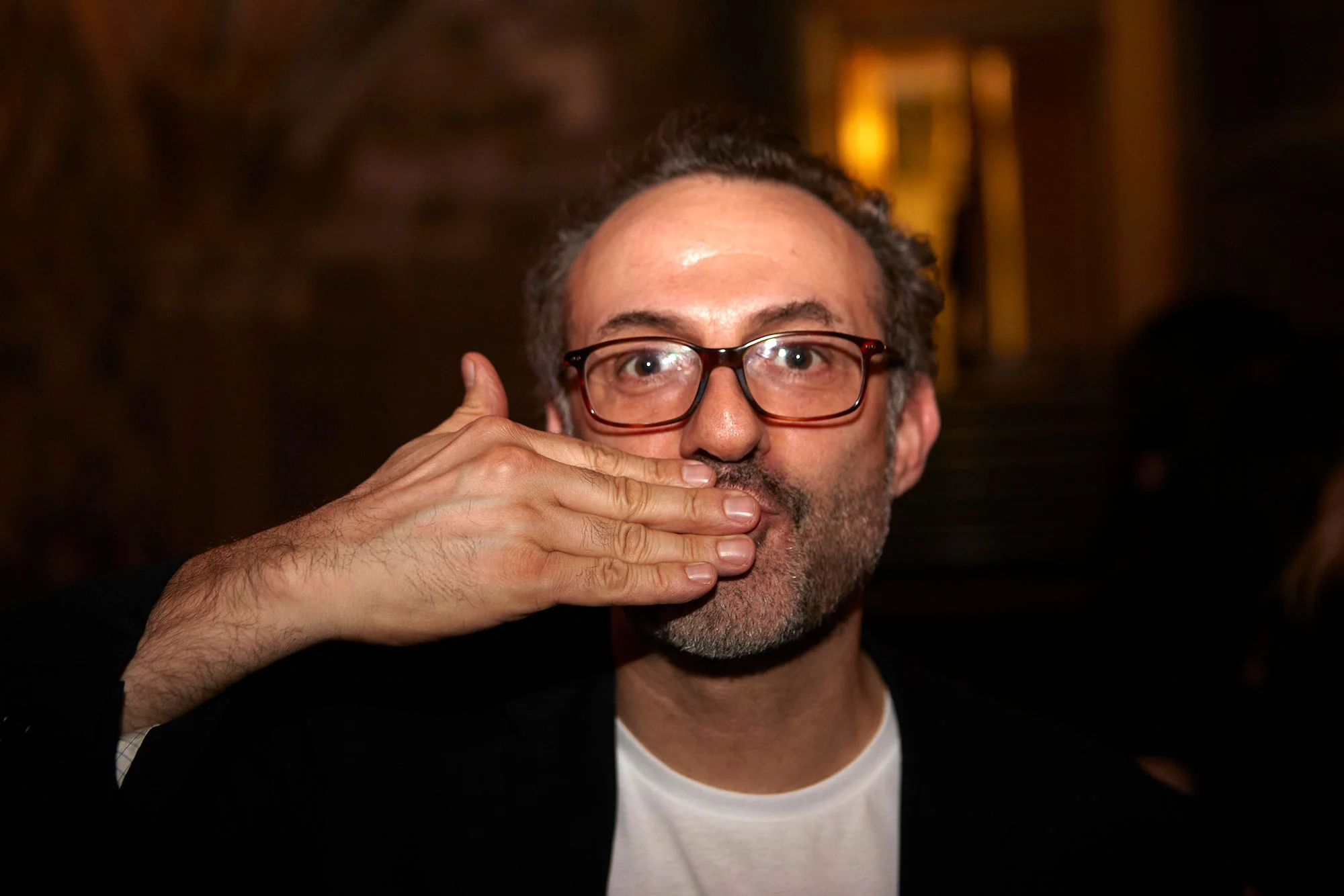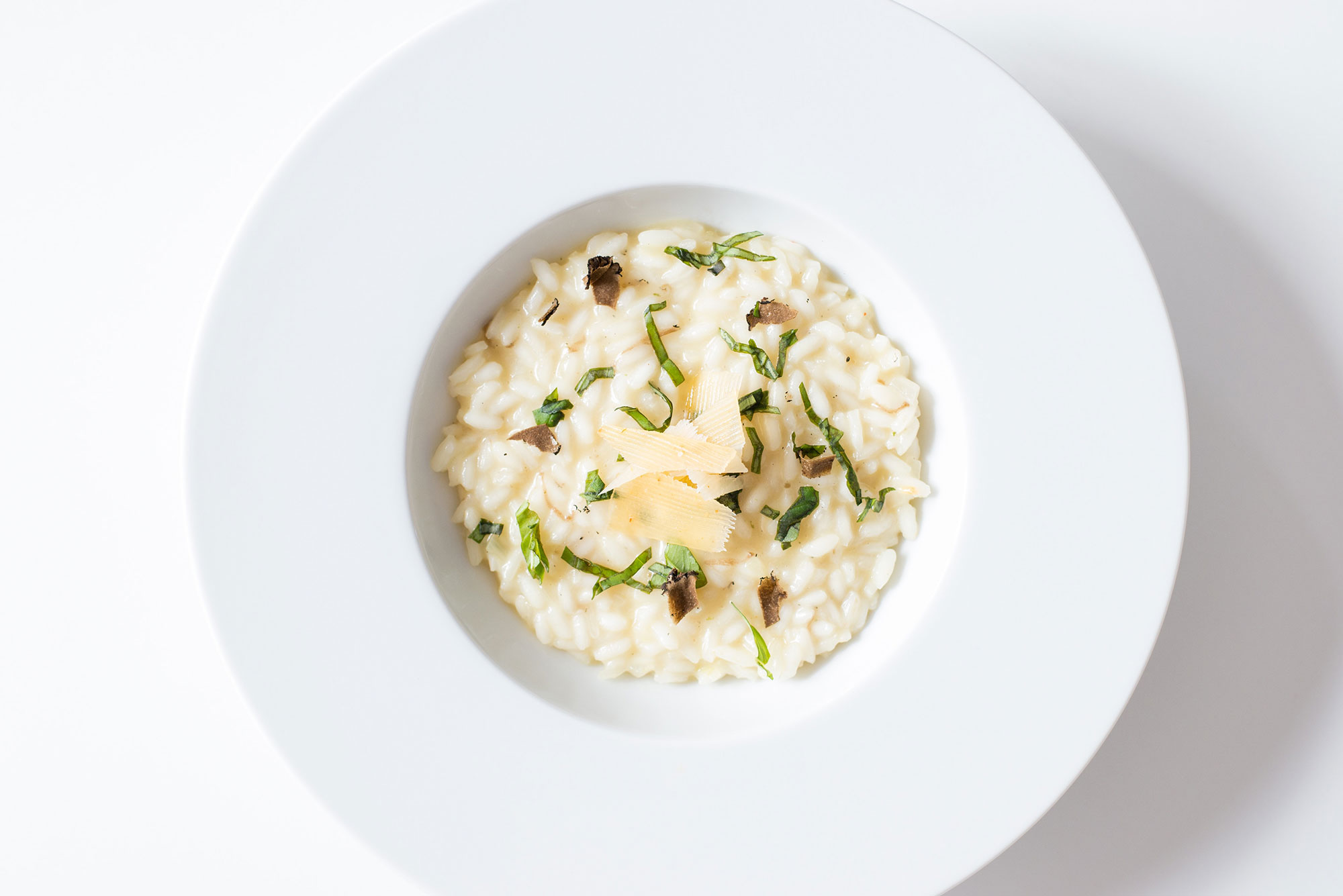Massimo Bottura and the “Success” of the Less-Traveled Path
The city of Modena in northern Italy can lay claim to many historical things, but it can thank two institutions for its current fame. First, Modena is just a few miles from Ferrari headquarters. Tourists stop by to visit the Ferrari Museum or ride a bus through its hallowed factory. Modena is the map-pin location for those who have made the pilgrimage to Ferrari-land.
Second, Modena is a pilgrimage city for food lovers. Its position in the Emilia-Romagna region, an area famed for its cheeses, makes for a populace who care about food. To top it off, the world’s foremost dining establishment is in Modena!
Osteria Francescana is the long-time project of Massimo Bottura. He’s a native-born Modenese with an American wife. The first episode of Chef’s Table—a Netflix series with beautiful cinematography and narration—chronicles Massimo’s journey. His small restaurant with its 12 tables has grown into the most coveted dining destination in the world. From Michelin to The World’s Fifty Best, Osteria Francescana is at or near the top of just about every professional list.
I’ve been to Modena but couldn’t dream of getting a reservation at Osteria Francescana. So why am I writing about Massimo Bottura? How does a world-renowned restaurant apply to ministry or theology?
While eating out is more popular than going to church, one can find helpful elements in this unique story. Three aspects of Massimo’s journey are helpful to those looking for “success” in today’s world of declining churches.
First, Massimo’s journey to success led him on the less-traveled path.
Massimo’s acclaim did not come easily. His first restaurant in Modena was a classic neighborhood kitchen. He sold it and chased his dreams in New York City where he honed his skills alongside famous chefs. Alain Ducasse eventually recruited him to cook in Monte Carlo at The Louis XV.
When he came home to Modena in 1995 and purchased Osteria Francescana, he was ready to do something unique. Massimo tried to reinvent classical Italian cooking. Local Modenesi shook their heads in disgust at what he had done with classics such as lasagna. “Who are you to mess with our traditions?” they cried. They refused to eat at Francescana.
Massimo’s path of stubborn creativity led the restaurant close to bankruptcy. His wife—to whom he gives the credit for his success—told him to give it another year. One can imagine how easy it would have been to give up. He believed in his craft and his food. He didn’t quit.
I’m convinced that the journey to church renewal goes through less-traveled places. I see little mystery in the fact that most growing churches today didn’t exist 30 years ago. Congregations pick up traditions and habits that block creativity. Rebirth requires death or a death-like experience that releases the old and makes possible the new.
Innovation for innovation’s sake means nothing. Pastors sometimes shoot innovation at their churches in the hope that something will stick. Such behavior is reckless.
To find “success” in a world of declining congregations, you need to think deeply about faith and how to practice it. Such reflection should lead to new ways of contextualizing Christian worship. This requires a willingness to travel paths forsaken by others—paths that may not be instantly popular.
Second, Massimo’s turnaround required a bit of luck.
Those who reach the place of success are tempted to claim the credit for themselves. Massimo humbly acknowledges how fortunate he was. In 2001 the restaurant was still struggling to gain a foothold. A famous food critic from Rome was caught in horrendous traffic along the freeway from Milan. He pulled off in Modena and visited Osteria Francescana because someone had told him “strange things were happening” there. He loved it! His review gushed with praise for Massimo’s ingenuity, and the customers started to flow in.
If not for a huge wreck on the A1 freeway, Osteria Francescana might have never survived. This ought to remind you that great ideas and good leaders don’t always enjoy success. Factors beyond your control play an oft-unspoken, enormous role.
A thriving church isn’t just about creative ideas or good theology. It’s often about being in the right place at the right time. I sardonically chuckle when I hear a church leader describe their “journey to success” as a supposed template for others. Please act a little more humbly! Fix what you can. Be persistent. But allow space for the unexpected.
Third, Massimo went global by remaining vigorously local.
Massimo’s cooking isn’t just about food. It’s love for a people and place. Osteria Francescana uses the finest, locally-sourced ingredients including Parmigiano-Reggiano cheese. The relationships between local vendors and the restaurant are so strong that Massimo orchestrated a global rescue of the local cheese industry.
An earthquake in 2012 nearly put many cheesemakers out of business: 360,000 damaged rounds of cheese worth $200 million! They had to be used quickly or go to waste. With his professional connections, he organized a global fundraiser. Diners across the world ate his recipe, a risotto-type dish made with the local cheese shipped worldwide before it went to waste. By intimately knowing his local market, he made a global impact.
In a 2017 speech at UCLA, Massimo said, “Our kitchen is not a list of ingredients or demonstration of technical abilities. It is a narration of the Italian landscape and our passions. Cooking is a collision of ideas, techniques, and cultures. It is not mathematical. It is emotional.” This is a point some of us have forgotten—myself included at times—and it applies to church as well. Doing church ought to stir the emotions and tell local stories.
Without a living narration of your shared story, your congregation is nothing more than a cheap purveyor of mass-produced religion. You ought to carefully craft communities that worship God and love the places they live. Your church should be filled with local passion and creative worship instead of a carbon copy of something 500 miles away.
The business of doing church isn’t always fun these days. But if you can claim the creative space of the less-traveled path, perhaps unexpected things will happen. After all, Jesus called you not to a life of safety but to the grand adventure of following him!
May the Spirit of God equip the people of God for the mission of God.
—
Header photo by Alice.jessica.north - Own work, “Massimo Bottura, from World's 50 Best Restaurants Awards 2012,” CC BY-SA 3.0, https://commons.wikimedia.org/w/index.php?curid=25103665








